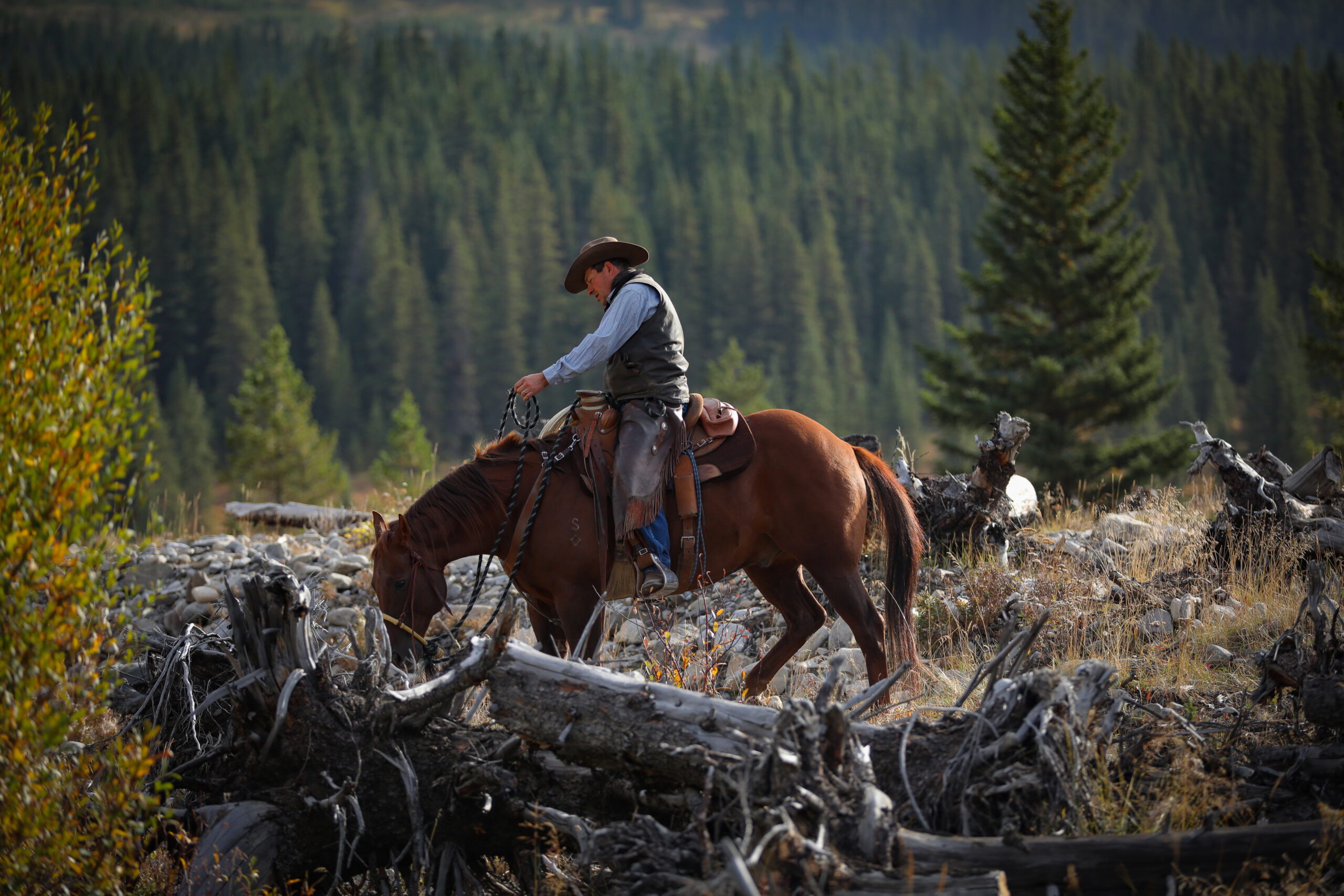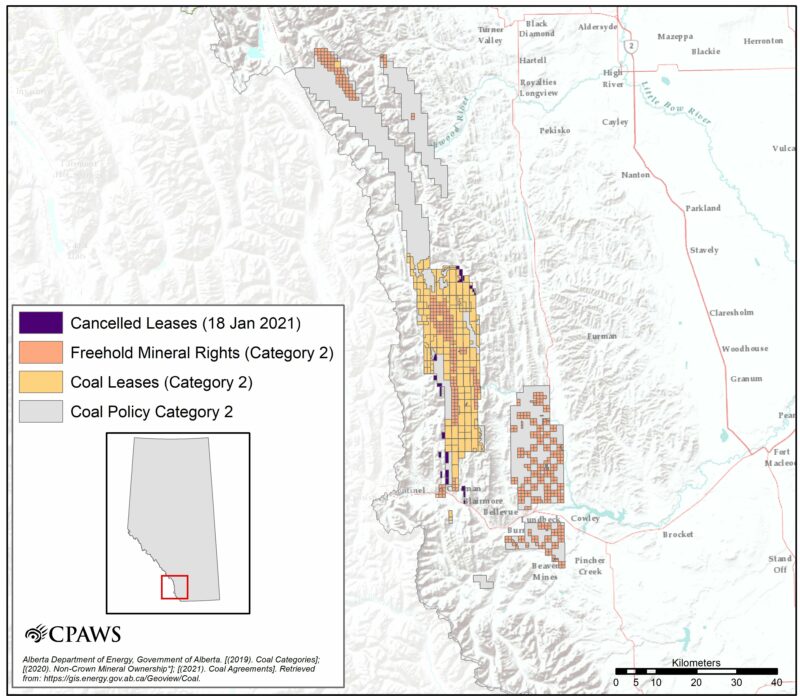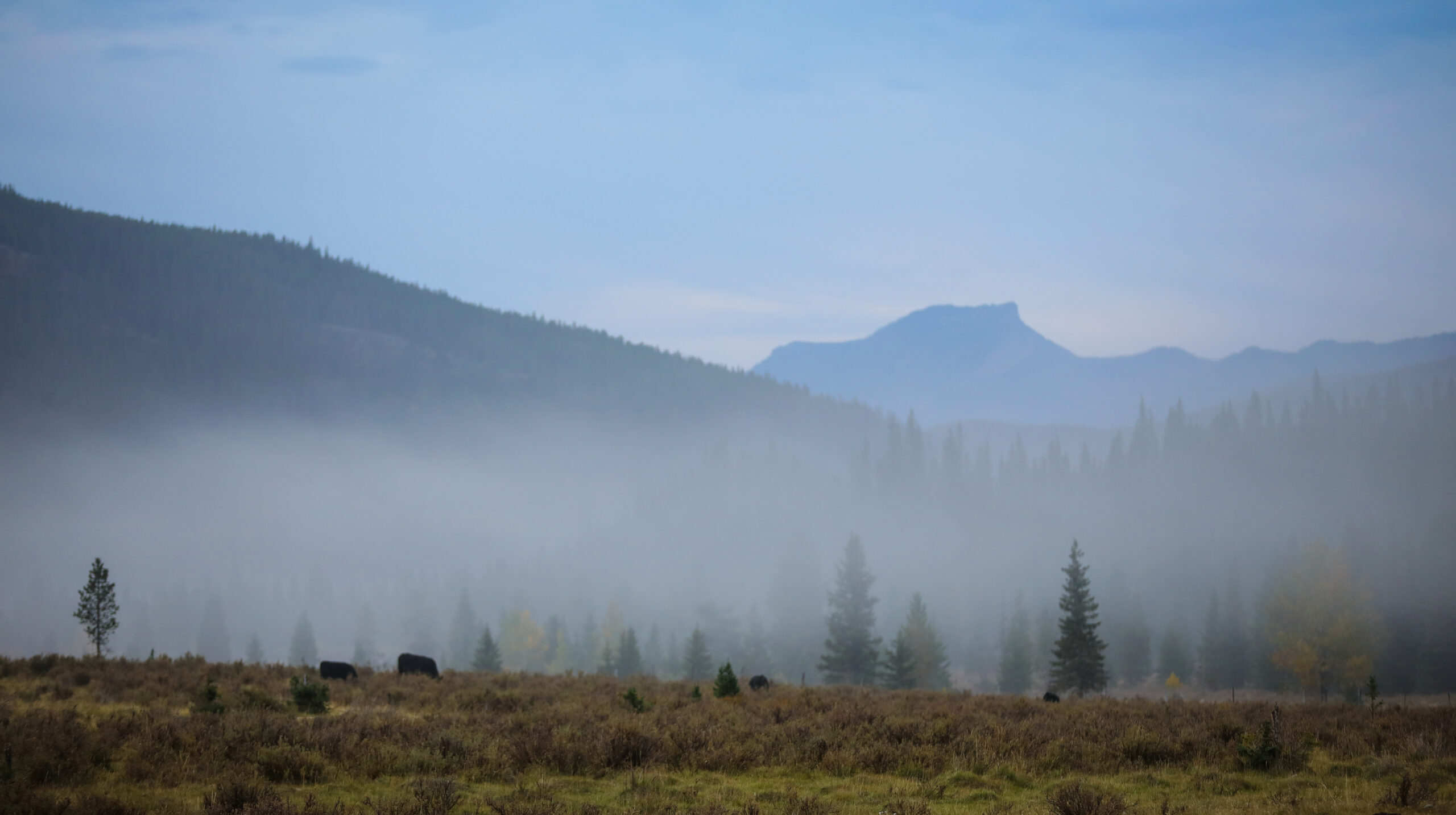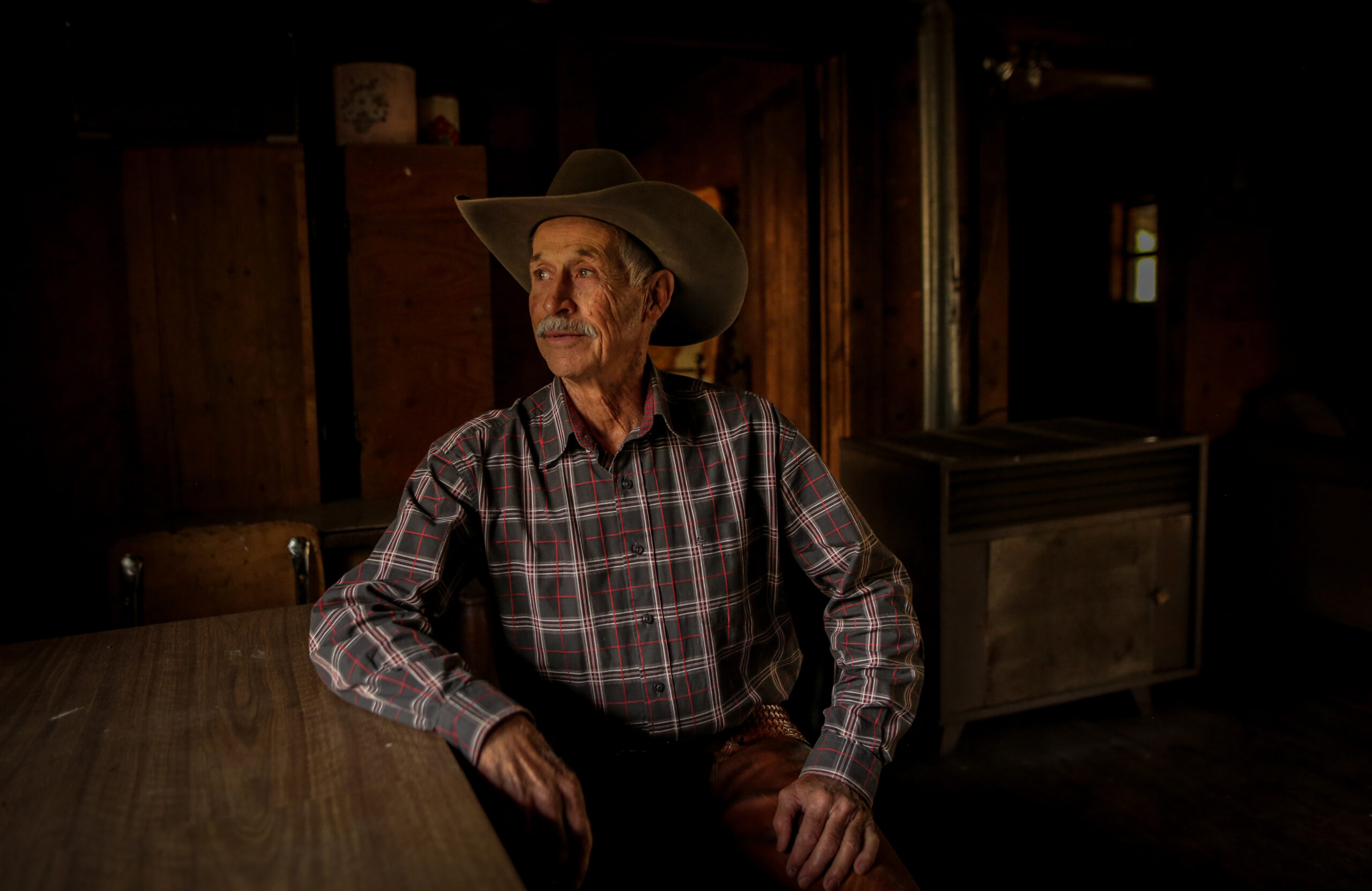In response to growing backlash against the United Conservative Party government decision to open previously protected areas of Alberta’s Rockies and foothills to open-pit coal mining, Energy Minister Sonya Savage said the province has paused all future coal leases in some of the most contentious areas.
Eleven recently issued coal leases will also be cancelled.
In her statement Monday, Savage said: “we have listened carefully to the concerns raised in recent days, and thank those who spoke up with passion.”
“This pause will provide our government with the opportunity to ensure that the interests of Albertans, as owners of mineral resources, are protected,” she said.
“It does definitely show that they are feeling the pressure,” said Katie Morrison, the conservation director of the Canadian Parks and Wilderness Society’s (CPAWS) southern Alberta chapter. But ultimately, it’s “too little, too late.”
“There’s another 420,000 hectares of leases in previously protected category 2 lands that this announcement doesn’t affect at all — it appears that that whole area will still be open for exploration and coal development,” she said.
The cancelled leases meanwhile, only cover 1,800 hectares, according to CPAWS.
“So, there’s still a big concern that they need to address,” Morrison said.Alberta’s decision last May to open up parts of the Rocky Mountains and foothills to coal mining made allies of ranchers, First Nations, environmental organizations and country music stars as they turned to the courts and social media to raise the alarm over threats to lands, at-risk species and Indigenous ways of life.
Morrison said the government still isn’t hearing “the full concerns of Albertans’ who are saying we don’t want new open-pit coal mines in our Canadian Rockies in these previously protected areas.”
In a statement at the time of the original May 2019 announcement, Savage said “rescinding the outdated coal policy in favour of modern oversight will help attract new investment for an important industry and protect jobs for Albertans.”
The policy shift was swiftly denounced by First Nations leaders, environmental groups, ranchers and others concerned not only about the risk coal development would pose to water, sensitive habitats, wildlife and in some cases their livelihoods, but also the lack of consultation on a decision with such far-reaching consequences.
In January, country music stars including Corb Lund, Pauld Brandt and k.d. lang also added their voices — and platforms — to the fight.
In a Facebook post that had been shared more than 12,000 times by Jan. 18, Lund said: “in my opinion, it is inappropriate and short-sighted for government, regardless of party, to make decisions of this magnitude without wide consultation with the groups that could be irreversibly affected by open pit coal mines.”
Brandt was quick to lend his support, offering this take on Instagram: “We can’t put short-sighted economic benefit ahead of long-term consequences that could devastate our people and land for generations to come.”
Then on Saturday, lang tweeted: “There is no doubt in my mind. Opening the Rockies to coal mining is an irreparable and short sighted mistake.”
Ranchers, First Nations take legal action
The cancellation of recent coal leases does nothing to protect the grazing lands of the two ranchers who are challenging the government’s decision to abandon the coal policy in court, according to their lawyer.
In July, ranchers John Smith and Macleay Blades filed an application for judicial review to the Court of Queen’s Bench of Alberta asking the court to quash the government’s decision. In their application, they argue the decision effectively amended the South Saskatchewan Regional Plan, which incorporates the coal policy.

John Smith looks for cattle during the Plateau Cattle Company’s fall round-up on their Mt. Livingstone grazing allotment with Cabin Ridge Mountain in the distance. Photo: Leah Hennel / The Narwhal
Richard Harrison, Smith and Blades’ lawyer with the firm Wilson Laycraft, explained that under section 5 of the Alberta Land Stewardship Act the government is required to consult the public before making changes to regional plans. No consultation took place prior to the coal policy change.
Harrison said since his clients are directly affected by the UCP government’s decision, the province also had a duty of procedural fairness to consult with them beforehand.
In an email to The Narwhal Monday afternoon, Harrison said the government’s decision to cancel recent coal lease sales and pause future sales “will not stop development on the category 2 lands in my clients’ grazing allotments.”
The mineral rights that affect Smith and Blades’ grazing lands are either owned by third parties or were already sold, he explained.
The government is also facing two other legal challenges of its decision to rescind the coal policy, one launched by Ermineskin Cree Nation and Whitefish (Goodfish) Lake First Nation #128 and another by Siksika Nation and Kainai Nation, which is also known as the Blood Tribe.
In both cases, the nations are asking the court to overturn the government’s decision to rescind the coal policy on the basis that the government had a duty to consult the nations, that the government made the decision without considering the nations’ rights and interests in the area and that the government failed to meet its obligation to consult under the Alberta Land Stewardship Act.
The Alberta government has asked the court to consolidate all three applications for judicial review on the basis that all three claims relate to the same decision and “seek substantially the same remedy” — for the coal policy to be reinstated.
The government has also filed an application to dismiss Smith and Blades’ application for judicial review and, in its application to consolidate the three cases, said it anticipates it will file similar applications to dismiss all or part of the judicial review applications filed by the First Nations.
A hearing scheduled for Tuesday and Wednesday could address the questions of whether the cases are consolidated, what groups get status as intervenors and whether the cases move forward at all.
After Monday’s announcement, a spokesperson for the ministry told CBC it was up to the courts to decide whether the case would be impacted by the news.

According to the Canadian Parks and Wilderness Society, the Alberta government’s January decision to pause future coal lease sales in former category 2 lands has no impact on 420,000 hectares of existing leases. Map: CPAWS
Abandoning the 1976 Alberta coal policy
The land classification system dividing the province into four categories, allowing various levels of coal exploration and development, was the last element of the 1976 coal policy to remain in effect until the UCP government scrapped it last year, doing away with restrictions on category 2 and 3 lands.
Previously, open-pit coal mines were banned on category 2 lands, which included parts of the Rocky Mountains and foothills, and exploration and underground mining was limited in these areas. Exploration had normally been allowed on category 3 lands but mine development was restricted.
The area previously protected as Category 2 includes important headwaters that provide drinking water for millions of Albertans downstream.
These areas are also important habitat for grizzly bears, elk, endangered caribou and the threatened westslope cutthroat trout.
In May, the province said the coal policy is replaced “by modern regulatory processes, integrated planning and land use policies.” The government echoed that language this week when it announced it was pressing pause on coal lease sales on former category 2 lands.
But Harrison said “that’s simply not the case at all.” Instead, the government’s May 2019 decision has left significant gaps in land management policies — something officials were aware of ahead of time.
Harrison pointed to a March 2020 document titled “Advice to minister for decision about Alberta’s coal policy.” The document was filed in court as part of the affidavit of Michael Moroskat, the director of coal and mineral development with Alberta Energy.
“Despite existing land use policies, there is risk that rescission could result in policy gaps because several integrated resource plans that remain active within the eastern slopes rely on the coal categories to establish baseline conditions (mostly in the South Saskatchewan region, but also a portion of the upper Athabasca region),” it says.
“The full extent of the policy gap risk will not be quantified until Alberta Energy completes its review of the coal categories with input from Environment and Parks,” the document continues.
And while Alberta Energy said last May that protections would remain in place for category 1 lands, where coal leasing, exploration and development had been prohibited, Harrison said there are outstanding questions about which policies protect them future coal development.

A ranch in the Livingstone Range. Photo: Leah Hennel / The Narwhal
Coal mining on eastern slopes would affect First Nations hunting, fishing
Even with some leases cancelled, concerns remain about the potential for future coal mining activities to affect the traditional activities of First Nations in the area. Coal development on the eastern slopes would directly affect the traditional territories and treaty lands of the four nations that have filed requests for judicial review.
Kainai Nation and Siksika Nation, both signatories to Treaty 7, continue to hunt, fish, trap and gather in the area, according to their application.
“The ability to use their traditional lands for a range of practices and access to traditional resources is extremely important for the nations as the land and resources underpin their culture, tradition, identity, well-being, spirituality and rights,” the court document says.
The region similarly continues to be of vital importance to Ermineskin Cree Nation and Whitefish Lake First Nation, both signatories to Treaty 6.
The nations hunt and harvest along the eastern slopes and the area is “of critical importance to the nations for the exercise of their treaty rights and related cultural practices,” according to their application for judicial review.
“Importantly, it is one of the few areas that continues to support the practice of the nations’ Treaty Rights and culture,” the document says.
Proposed Alberta coal mine would destroy prime grazing lands
Since the policy was rescinded, the Alberta Energy Regulator has allowed coal exploration on lands Smith and Blades use to graze their cattle, Harrison said.
At the same time, companies including Australia’s Atrum have been pushing forward with plans for open-pit coal mines in regions previously protected as category 2 lands. In her statement Monday, Alberta’s energy minister said the cancellation of 11 separate coal leases “has no impact on existing coal projects currently under regulatory review.”
Under the rescinded coal policy, Atrum and others would have needed exemptions to develop an open-pit mine in these areas.

Macleay Blades of Rocking P Ranch poses in his family’s 100 year-old cabin on the Mount Livingstone Range. In July, Blades and fellow rancher John Smith filed an application for judicial review of Alberta’s decision to alter its 1976 coal policy. Photo: Leah Hennel / The Narwhal
Atrum’s Elan Hard Coking Coal Project is located along a formation called Cabin Ridge, which falls within Blades’ grazing allotment on the eastern slopes of the Rockies. The company’s exploration area lies between the Old Man River and the Livingstone River, according to Blades’ July 2020 affidavit.
“When the coal policy was rescinded, that barrier to mining in my Cabin Ridge grazing lease allotment was also rescinded,” Blades said in his affidavit.
He not only raised concerns that coal mining would add pressure to already stretched water resources, but also about the risks of selenium, a mineral known to cause deformities in fish.
In neighbouring British Columbia, selenium from metallurgical coal mines has polluted the Fording and Elk rivers for years. (Metallurgical coal, which is used to make steel, is also the focus of the proposed Alberta projects.)
Smith and Laura Laing, third-generation ranchers who run a calf-cow operation south of Calgary, hold a grazing allotment next door to Blades’, just north of Cabin Ridge in the Livingstone Mountain Range.
Each summer they take about 35 per cent of their herd of cattle to graze those lands. A coal mine would “substantially change our operation and our ability to be sustainable,” Laing told The Narwhal.
Like Blades, Smith and Laing’s grazing lands lie directly in the path of potential mountaintop-removal coal mines — development that would be “irreparable and devastating to the area,” Laing said.
“The grass is really important, not just for us but for the whole environmental landscape.”
Trying to repair the damage once those grasses have been stripped away would be like trying to rebuild the mountaintop itself — “just about impossible,” Smith said, noting “it just never comes back the way they were.”
Read more: Meet the people saving Canada’s native grasslands
Alongside concerns about the threat to the grasslands and water, Smith said he’s worried about the risks of contaminated dust from coal mines blowing across the range, possibly reaching their home ranch.
“I’m actually old enough that I can remember when Mount St. Helens erupted and there was ash here in Nanton — it was quite a bit further than these proposed mines,” he said.
The water source for the prairies
Much of the concern that ultimately pushed the Energy Minister to pause new coal leases focused around open-pit mines and their impact on water quality.
Research published in early January identified the eastern slopes of the Rockies as a key hotspot for ecosystem services and an area that should be protected.
The region holds some of Alberta’s “most ecologically sensitive areas” and serves not only as habitat for threatened fish and other wildlife, but also as the source water for the Canadian prairies,” CPAWS’ Morrison told The Narwhal.
“It is a really important place, which is why that [coal] policy was created in the first place,” she said.
The organization has applied to be an intervenor in support of Blades and Smith’s application for judicial review, arguing that given the potential impact of the government’s decision to rescind the coal policy, the public — and CPAWS as a public interest group — should have been consulted as well.
Lack of consultation, timing of coal policy decision ‘speaks volumes’
“It’s Alberta’s water and these are Albertans’ mountains and everybody should have a say,” Laing said.
“We have people contacting us on a daily basis saying, ‘how come I’m just hearing about this now,’ and we don’t have an answer for them,” she said.
Harrison, the lawyer for Smith and Blades, said the UCP government’s decision to rescind the coal policy stands in stark contrast to the way the policy was developed back in the 1970s.
“There was a four-year, approximately, period of consultation, hearings, government review, recommendations, that went into actually creating the coal policy,” he said. “They heard from ranchers, farmers, First Nations, coal companies, recreational users, scientists, geologists — they heard from everybody.”
“And when you have that extensive process that went into creating the coal policy and then to rescind it on the Friday of May long weekend during the middle of a global pandemic when the courts are shut down, I think really speaks volumes.”
In a statement Monday, Chris Smith, the parks coordinator with CPAWS’ northern Alberta chapter, said the government’s decision to cancel some leases and pause future sales does not address underlying concerns about possible coal mining in previously protected areas.
“We are asking the Government of Alberta to fully reinstate the coal policy, hold public consultations on the issue and permanently prohibit new coal proposals, exploration and open-pit mines in these important areas,” he said.


